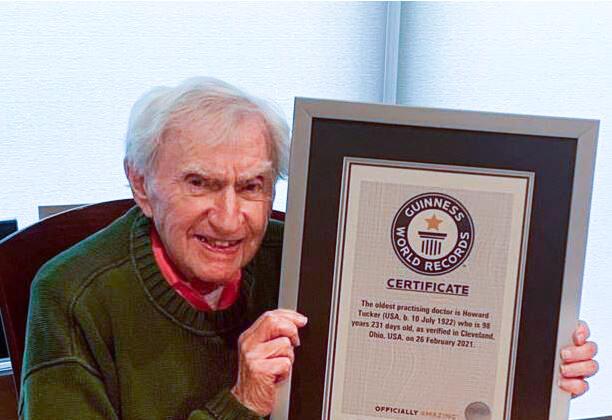TCM doctors believe that the keys or modus of a melody also correspond to different organs in the body. That is why choosing the right music can enhance one’s health.
Classical musicians are famous for longevity, and many octogenarian artists still play actively in concerts. Arthur Rubinstein, a well-known American pianist in the last century, was 95 years old when he passed. Rubinstein was still performing on stage when he was nearly 90 years old.
Classical Female Harpists Live the Longest
Russian scholars have examined the life expectancy of more than 40,000 creative professionals, finding that musicians who play classical instruments live considerably longer than people in the general population. About 44 percent of female harpists live to be over 90 years old, while six percent live to the age of 100. Orchestra conductors are also famous for longevity. Among them, 33 percent of female and 12 percent of male conductors live to be over 90 years old.Pop Musicians Have the Shortest Life Span
Dianna Theadora Kenny, Ph.D., from the University of Sydney, Australia, conducted a study to analyze the data of 13,195 pop musicians who died between 1950 and 2014. The research revealed that pop musicians lived significantly shorter than “comparable general populations.”Across the seven decades studied, popular musicians’ lifespans were up to 25 years shorter than the comparable US population. Accidental death rates were between five and 10 times greater. Suicide rates were between two and seven times greater; and homicide rates were up to eight times greater than the US population.
Musicians from the new waves of pop music, such as metal, rap, hip-hop, and other genres, have the shortest life spans, with an average of below 40 years.
Classical Music Positively Impacts Energy Field
Pop musicians die younger than ordinary people. Besides unhealthy living habits and career pressure in the industry, it may also relate to the music’s energy.Classical Music Calms People’s Minds
Clinical experiments have confirmed that classical music calms people’s minds and relieves anxiety. Many studies focus on playing music in hospitals or dental clinics to relieve patients’ pain and anxiety.Nervousness and anxiety are common when visiting a dentist. Patients’ hands and feet often feel cold. In severe cases, patients are not able to continue with dental treatment. But listening to music can help them feel more at ease.
Classical Music and Memory
In addition to an extended lifespan, classical instrument musicians show elevated cognitive and memory skills after entering old age.There was no noticeable difference in the three groups of people regarding age, gender, health status, or education level. The researchers asked the groups to perform a series of neuropsychological tests. Senior instrument players’ nonverbal and word memory were measurably better than non-musicians.
Is It Too Late to Learn?
Can learning to play an instrument have positive effects? A British study published in Scientific Reports in 2022 examined this.A University of Bath research team in the United Kingdom recruited 31 adults with no prior musical experience and randomly divided them into three groups. The first group took a weekly one-hour piano lesson to learn to play classical music. The second group listened to the music the first group learned and played for one hour. The third group read for one hour without any music.
Music and Organs
Dr. Yang Jingduan, the founder of Yang’s Integrated Medical Center in the United States, acupuncturist, and psychiatrist, said that the music a person enjoys listening to reflects not only this person’s cultural characteristics, and musical literacy but also physiological characteristics, psychological state, and health conditions.Yang explained that lively and upbeat music corresponds to the heart and the small intestine, which helps nourish the mind. It improves learning and work efficiency. Patients prone to fatigue and depression also respond well to joyful music. Stable and ambient music in C major corresponds to the spleen and stomach, promoting qi movement stability. In addition to strengthening the digestive system, C-major music can calm overthinking. On another note, any piece in D major corresponds to the human lungs and the large intestine. It has a therapeutic effect on anyone who often has colds, coughs, and seasonal allergies, and it can also help people prone to sadness relieve emotions and boost their mood.
Traditional Chinese medicine recognizes meridians as channels for human energy, which connects internal organs with acupuncture points on the body’s surface. Since music is composed of sound waves of different frequencies, sound waves also become energy. Different sound waves resonate with various meridian systems of the human body.
Yang observed, “The music’s energy showed the audience and boosted the movement and balance of the body’s energy.”
The doctor said even his clinical work could never match the magical effect music such as Shen Yun has offered his patients.
The doctor jokingly said, “Enjoying a music performance is much more joyful than having acupuncture and silver needles in one’s body.”




